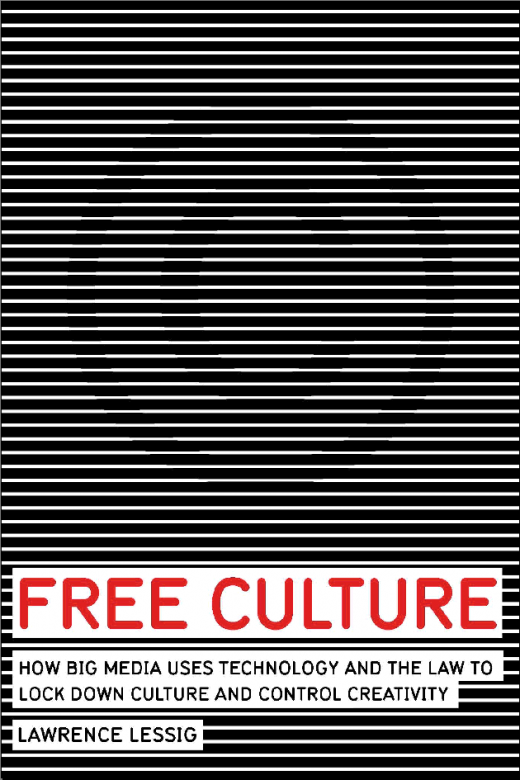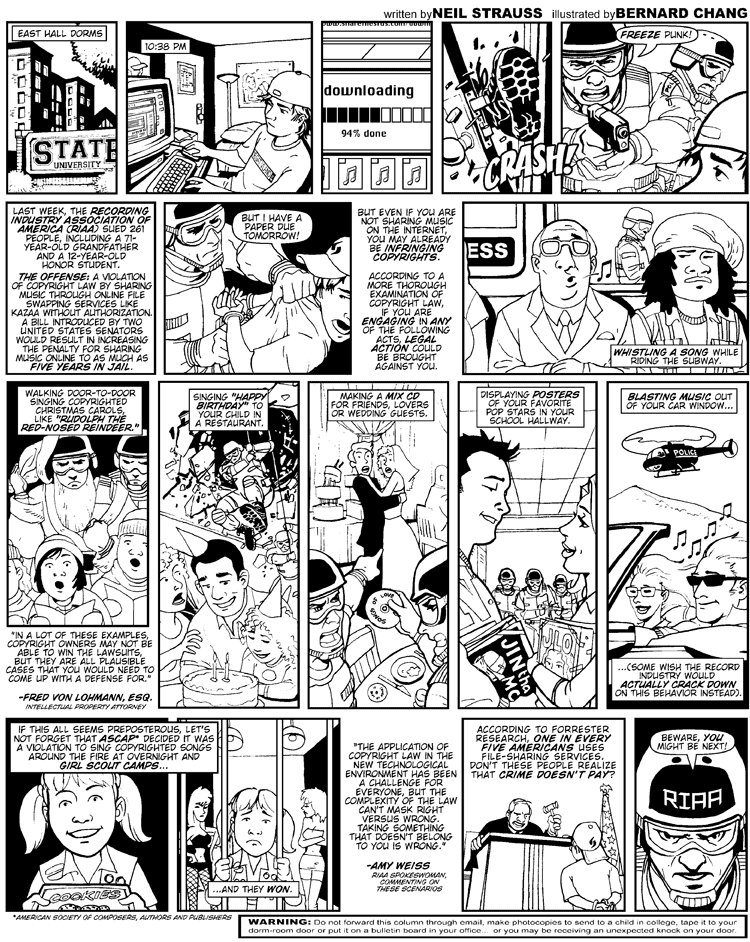
 CNET: As a presidential candidate, Barack Obama won applause from legal adversaries of the recording industry. Stanford law professor Larry Lessig, the doyen of the “free culture” movement, endorsed the Illinois senator, as did Google CEO Eric Schmidt and even the Pirate Party. That was then. As president-elect, one of Obama’s first tech-related decisions has been to select the Recording Industry Association of America’s favorite lawyer to be the third in command at the Justice Department.
CNET: As a presidential candidate, Barack Obama won applause from legal adversaries of the recording industry. Stanford law professor Larry Lessig, the doyen of the “free culture” movement, endorsed the Illinois senator, as did Google CEO Eric Schmidt and even the Pirate Party. That was then. As president-elect, one of Obama’s first tech-related decisions has been to select the Recording Industry Association of America’s favorite lawyer to be the third in command at the Justice Department.
And Obama’s pick as deputy attorney general, the second most senior position, is the lawyer who oversaw the defense  of the Copyright Term Extension Act — the same law that Lessig and his allies unsuccessfully sued to overturn. Obama made both announcements on Monday, saying that his picks “bring the integrity, depth of experience and tenacity that the Department of Justice demands in these uncertain times.” The soon-to-be-appointees: Tom Perrelli for associate attorney general and David Ogden for deputy attorney general.
of the Copyright Term Extension Act — the same law that Lessig and his allies unsuccessfully sued to overturn. Obama made both announcements on Monday, saying that his picks “bring the integrity, depth of experience and tenacity that the Department of Justice demands in these uncertain times.” The soon-to-be-appointees: Tom Perrelli for associate attorney general and David Ogden for deputy attorney general.
Perrelli is currently a partner in the Washington offices of Jenner and Block, where he represented the RIAA in a a slew of cases, including a high-profile bid to unmask file sharers without the requirement of a judge reviewing the evidence first. Verizon initially lost to the RIAA, but eventually prevailed in 2003 when a federal appeals court ruled the record labels’ strategy under the Digital Millennium Copyright Act was unlawful. During his confirmation hearing, it will be instructive to see if senators ask whether his zealous anti-file sharing advocacy can  make him an objective civil servant — especially when these same politicians want the Justice Department to sue peer-to-peer pirates at taxpayer’s expense. MORE
make him an objective civil servant — especially when these same politicians want the Justice Department to sue peer-to-peer pirates at taxpayer’s expense. MORE
PREVIOUSLY: A U.S. Senate panel on Thursday overwhelmingly approved a bill backed by the recording industry that would give federal prosecutors the power to file civil lawsuits against peer-to-peer users who violate copyright laws. By a 14-4 margin, the Senate Judiciary Committee voted for the Enforcement of Intellectual Property Rights Act, which would create stricter IP laws, as well as increase the ability of the White House and Justice Department to enforce those laws. Groups such as the American Library Association and the Electronic Frontier Foundation are opposed to portions, including the Justice Department pursuing taxpayer-funded lawsuits on behalf of private parties. MORE

